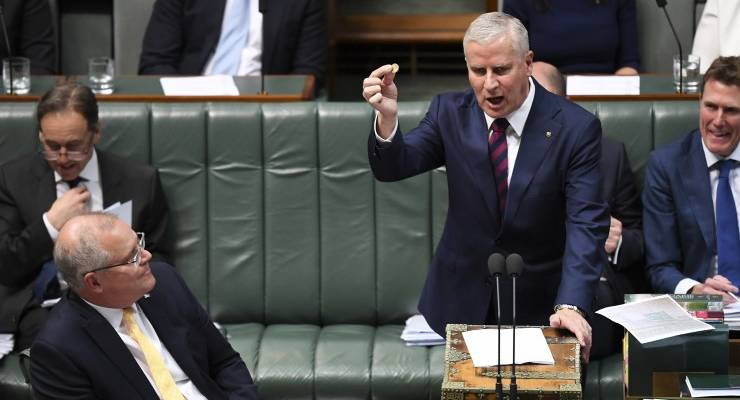
How much of the country does Deputy PM Michael McCormack speak for when he places climate-threatened Pacific neighbours behind Australia’s economic interests? Not much, Crikey readers suggest — though the topic of how to wind down our fossil fuel industry is more complex than some want to admit. Meanwhile, readers waded into the ongoing debate of political polling in Australia, and discussed the career of Seven chairman Kerry Stokes
On climate change and economic exploitation
David Howe writes: Michael McCormack’s logic is premised on the orthodox assertion that our national economic interests are equally shared when it’s abundantly clear the current political economy benefits only the rich. Still, a good old property-owning farmer knows all about entitlement and privilege.
Roger Clifton writes: The Deputy Prime Minister’s derisive jibe nevertheless poses a moral challenge: should we shut down our coal, oil and gas industries? The conservative position is no. Considering the damage to the climate we bequeath, their answer is contemptible, but in debating terms they are triumphant. Although the eradication of coal is largely made as a token effort, it is a feint to avoid addressing the main problem. Only the Greens pay lip service to the eradication of gas, but support is weak and no one is addressing the substitute for liquid fuels from oil.
On polling
Andrew Reilly writes: I haven’t seen any analysis, yet, that shows that the pre-election polls were incorrect. Indeed, as the INQ articles point out, they were the same to within a 3% margin of error, even though they used different polling methods. So the safest bet is to assume that they were right. There is no conflict between that conclusion and the outcome of the election, because the two events measure different things. A whole-country population poll will only be reflected in corresponding numbers of won seats if the distribution of voting intention is uniform across the country and across seats. Which of course it isn’t. Until pollsters actively attempt to estimate won seats, rather than individual voting intention, we won’t learn anything interesting from them.
On Kerry Stokes and Seven
Laurie Patton writes: Outgoing boss Tim Worner is old school TV. He’s like the surfer who rode a big wave but didn’t see the rocks and failed to drop off in time to catch the next one. Having finally beaten Nine to become the country’s top rating commercial television network, Seven clung doggedly to its legacy business model while all around it the media world was rapidly changing. Once James Warburton waxes up his board and heads out he’ll need to watch for dangerous rips and paddle very hard.
Send your comments, corrections, clarifications and cock-ups to boss@crikey.com.au. We reserve the right to edit comments for length and clarity. Please include your full name if you would like to be considered for publication.







Andrew Reilly, people will present themselves in the best light to pollsters and tell them what they think the pollster wants to hear. They’ll also lie just for the fun of it. They’re surely the most unpredictable of beasts.